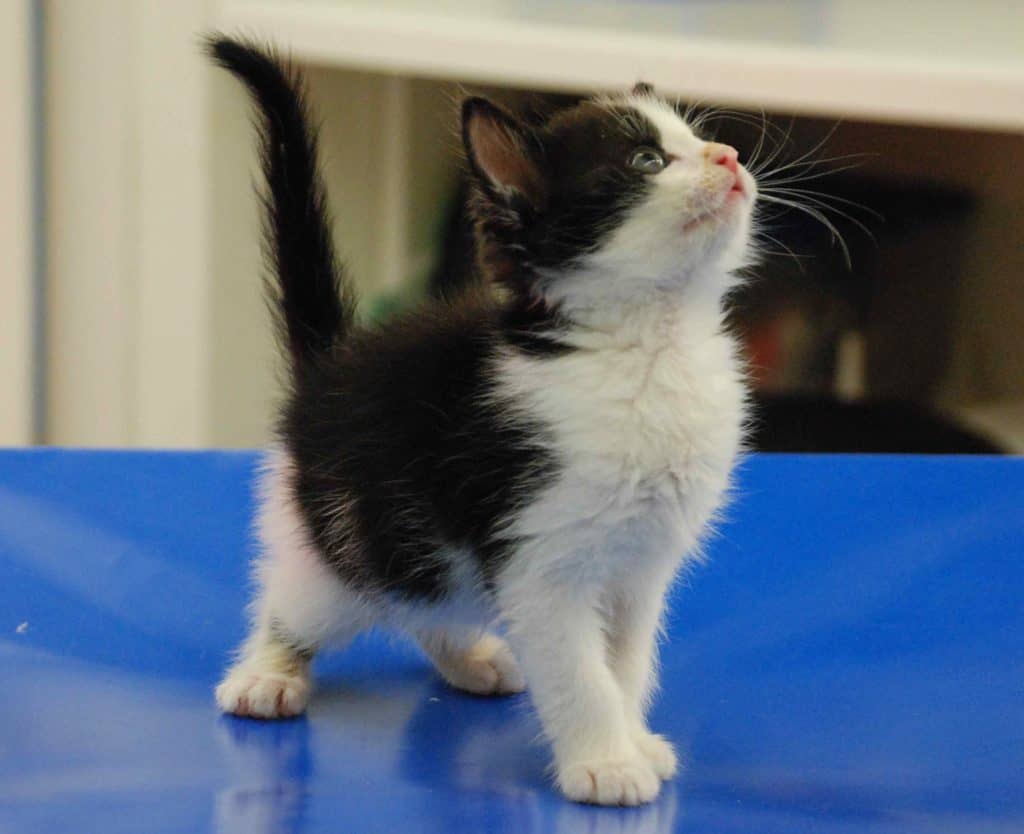Cats should be vaccinated with current vaccines without adjuvants (admixtures)!
The most common reasons for losing young cats are viral infections and accidents. It is difficult to protect cats from accidents, unless they are not allowed outside. However, cats can be protected from most serious viral infections by vaccination. In order for the vaccination protection to be good, the vaccine must be up to date. Viruses are very adaptable and change with time. Therefore, it is necessary to change to new vaccines from time to time. The current vaccine series allows us to vaccinate completely without adjuvants. Since adjuvants can very rarely be the cause of serious side effects, it is better to do without them.
Why vaccinate cats at all?
We recommend to vaccinate cats only against infectious diseases, which can be controlled badly or not at all by other ways and are a serious danger for the cats.
1. cat cold: Cats can get very serious changes in the mouth and throat that prevent them from eating, in addition to sneezing and coughing. The cats can also go blind. Once the cats are sick, it is very difficult to get them back to health. The disease can leave permanent damage or become chronic. In recent times a particularly strong pathogenic strain of the calicivirus has emerged, which kills cats within 2-3 days. This disease can also affect pure domestic cats! Against the three most important pathogens (Caliciviruses, Herpesviruses and Chlamydia) one can vaccinate however successfully! This vaccination is very well tolerated.
2. feline epidemic: Also called panleukopenia, because the disease dangerously reduces white blood cells. The disease is caused by the parvovirus. This bad disease makes bloody diarrhea, abdominal pain and vomiting. It affects the whole body and usually leads to death. Diseased animals can only be supported symptomatically and must be isolated, because the highly contagious disease can be transmitted directly or indirectly to other animals. Indirect transmission is also possible to indoor-only cats. Kittens and immunocompromised cats are particularly at risk. Cats can only be protected from this disease by up-to-date and good vaccination protection. The vaccination is usually combined with the cat cold vaccination and is well tolerated.
3. leucosis: Caused by the feline leukemia virus (FeLV). This non-treatable disease is passed directly to other cats via saliva, feces, nasal secretions. Pure bred cats cannot become infected. These viruses can be in a cat for years until the disease breaks out. All cats are tested for the virus before they are vaccinated against leukosis. If cats that are already infected are vaccinated, the disease can break out. The vaccination protects well and is well tolerated. Vaccination is highly recommended for cats that go outside. It prevents the infection with the virus and protects the cats from the fatal disease. Most of the infected cats die within two to three years. Some of the infected cats do not get the disease, but they can infect many other cats. When the disease breaks out, the course is always fatal, so this vaccination is very important.
4. rabies: Switzerland is rabies free and therefore this vaccination is only of importance when cats are transported across the border. The deadly rabies virus leads to bad brain inflammations. Treatment of rabies is prohibited because the risk to humans is far too great. Diseased animals usually die within three to four days. The infection by the virus can be two weeks or up to several months ago. In Switzerland, it is mainly in illegally imported animals without rabies vaccination. Please note that rabies is a zoonosis and a deadly danger for humans.
Are there so-called "vaccine tumors" in the cat?
No, there are no vaccine tumors. In the past, it was believed that certain leukosis vaccines were possible. Today, we know that each injection (syringe) poses a small risk due to irritation of the tissue. The risk can be reduced by using the smallest possible needles and by using medicines and vaccines that cause little irritation. Of course, only injections that are necessary should be made. We deal daily with deadly diseases that could have been prevented with vaccination, yet we see only 1 - 2 such "syringe tumors" within 10 years. A reasonable risk assessment gives the answer whether it makes sense to vaccinate or not.
From experiences and discussions around vaccinations in humans, sometimes erroneous conclusions are made about vaccinations in animals. We would like to point out that the risk in animals may be different. If you have any questions, we will be happy to help you. We recommend only the vaccinations that are really important and apply the vaccination intervals individually.

